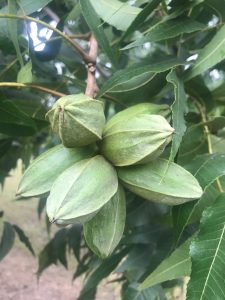A recent post by the North Carolina Cooperative Extension Henderson County Center warns us about "The Worst Thing You Could Do to Grapes in Unseasonable Warm Winter Weather." The worst thing is to begin pruning too early.
"Pruning helps to stimulate vine growth. You may see grape buds in some degree of bud swell, particularly the European bunch grape varieties. Those varieties have very little chilling requirement that can be met in a few cold days.
"A short cooling pattern will do little to harden the vines and buds for any potential cold weather in January or February. A precipitous drop (30-40°F) in temperatures after warm weather can cause a lot of damage.”
It's a warning we should heed. But wild fluctuations in weather patterns can catch us by surprise. Just when we think it's cold enough to prune safely, a significant rise in temperatures can initiate bud swell. Then - BAM - a deep drop in temperature causes a whole lot of damage. Not only are buds frozen, but entire vines can be wiped out by the cold.
Those of us who have several acres planted in grapes are bound by the calendar and seasons, so we have to have our vines pruned within a particular time frame. We do the best we can.
The best advice is to check the long-range weather forecasts before beginning the pruning operation.
Return to GoGardenNow.com.






